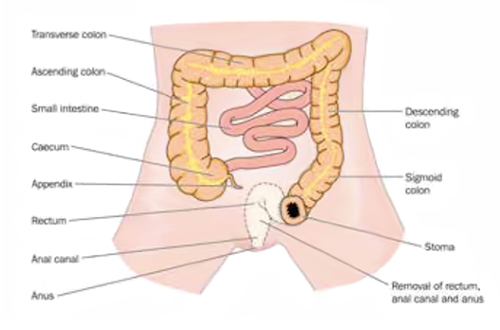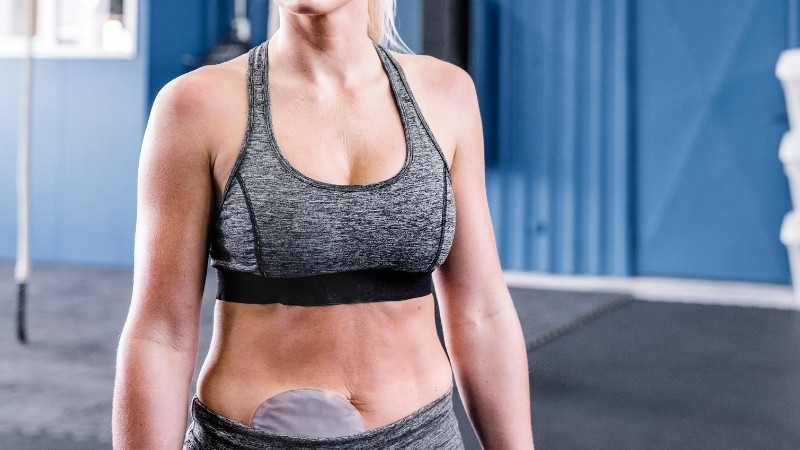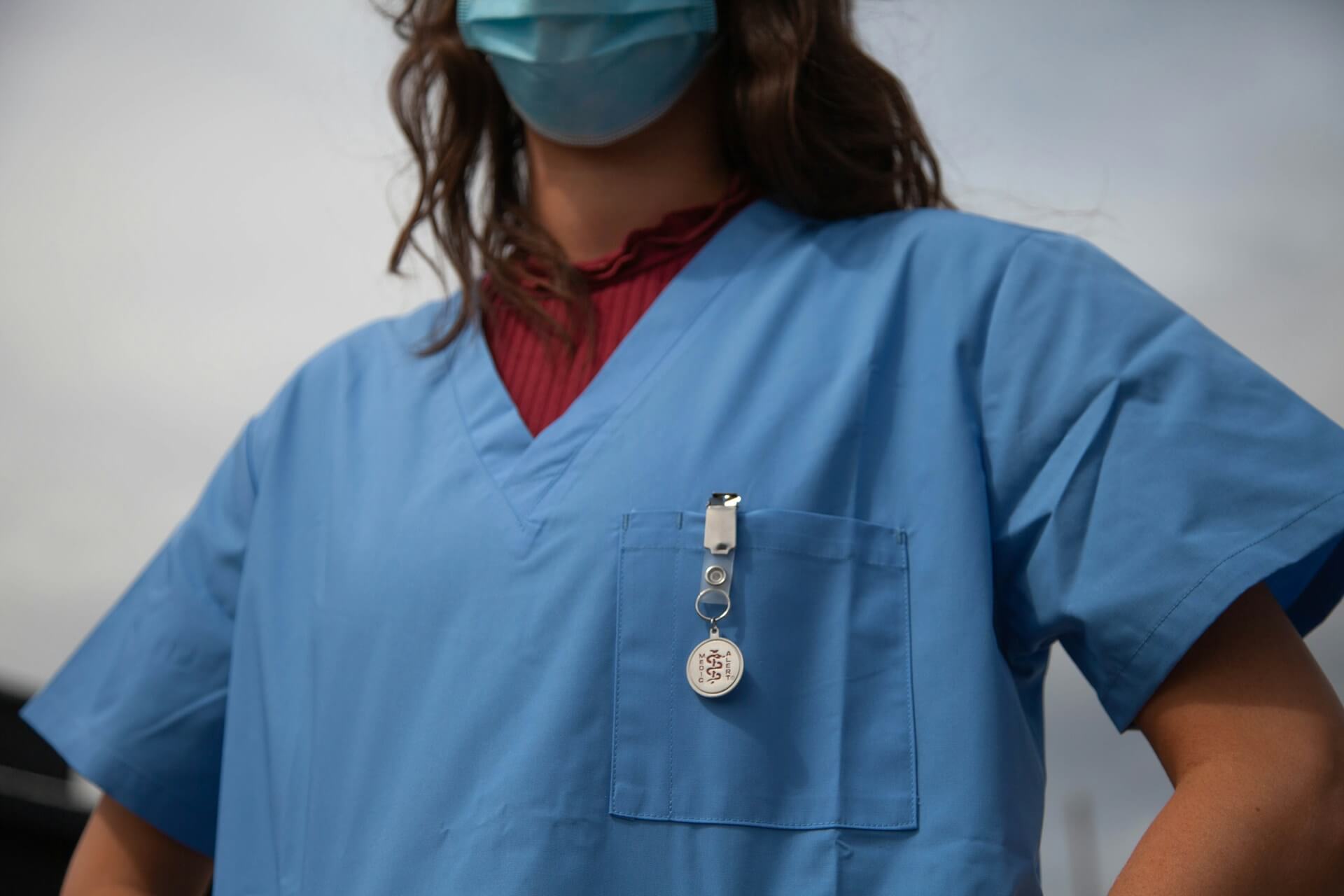A stoma is an opening on the abdomen that can be connected to either your digestive or urinary system to allow waste (urine or faeces) to be diverted out of your body. It looks like a small, pinkish, circular piece of flesh that is sewn to your body. It may lie fairly flat to your body or protrude out. Over the top of your stoma you will wear a pouch, which can either be closed or have an opening at the bottom. Your stoma has no nerve endings so you should feel no pain from it.
According to research carried out by the NHS, there are 176,824 people in the UK living with a stoma, with the most common conditions resulting in stoma surgery being colorectal cancer, bladder cancer, ulcerative colitis, Crohn’s disease and accidental injury.
Why Would Someone Need A Stoma?
There are many reasons why you may need a stoma. Common reasons include bowel cancer, bladder cancer, inflammatory bowel disease (Crohn’s Disease or Ulcerative Colitis), diverticulitis or an obstruction to the bladder or bowel. A stoma can be temporary or permanent depending on the cause.
Living with a stoma can require extra care when using a toilet. If you have a colostomy, ileostomy or a urostomy, you will need to empty or change your bag regularly. You may wish to carry a toilet card, designed for people living with a bladder or bowel condition who may need to access a toilet at short notice. This can help ensure you continue to lead a healthy, active life by enabling you access to toilets in moments of need.

Stoma Types
There are three main types of ostomy – colostomy, urostomy and ileostomy.
Colostomy
A colostomy is when a part of your large bowel or colon is pulled through from an incision made on your abdomen to form a stoma. There are two types of colostomy that can be formed.
End Colostomy
Where one end of the colon is pulled through and sewn to your abdomen. This can be permanent or temporary. The other part of the diseased bowel is usually either removed or allowed to heal before being joined back up together
Loop Colostomy
This is when a looped portion of your colon is pulled through to your abdomen. An incision is made in the loop and then sewn to your stomach with a rod to keep it above surface level. A loop colostomy is usually a temporary measure performed in emergency operation and will be reversed a few weeks/months down the line.
Learn more on the NHS website
Ileostomy
An ileostomy is when part of your small bowel (the ileum) is pulled through an incision made on your abdomen to form a stoma. There are two types of ileostomy that can be formed.
End Ileostomy
Where one end of the ileum is pulled through and sewn to your abdomen. This can be permanent or temporary. The other part of the diseased bowel is usually either removed or allowed to heal before being joined back up together
Loop Ileostomy
This is when a looped portion of your ileum is pulled through to your abdomen. An incision is made in the loop and then sewn to your stomach with a rod to keep it above surface level. A loop ileostomy is usually a temporary measure performed in emergency operation and will be reversed a few weeks/months down the line.
Learn more from the NHS
Urostomy
A urostomy is formed when your bladder is removed due to disease such as bladder cancer.
A small piece of your bowel will be pulled through an incision made through your abdomen and sewn to your stomach to form a stoma. The ureters will then be detached from the bladder and attached to the piece of bowel to form the urostomy.
At the Bladder & Bowel Community, we offer a range of help and support to those who have a stoma including help and advice from qualified nurses and a Home Delivery Service to ensure you have everything you need.
For more information about what a stoma is and how we can help explore our stoma care hub. Here, you can find out what to expect before and after surgery, products available, or problems you may encounter with a stoma. In addition, you can also find where you can go to talk to people in a similar situation.
Home Delivery Service
Bladder & Bowel Home Delivery service provides all of your urology, ostomy, wound care and prescription medication delivered right to your front door. With FREE Just Can’t Wait Card, Radar Key and Complimentary Items. Call FREE 0800 031 5406










